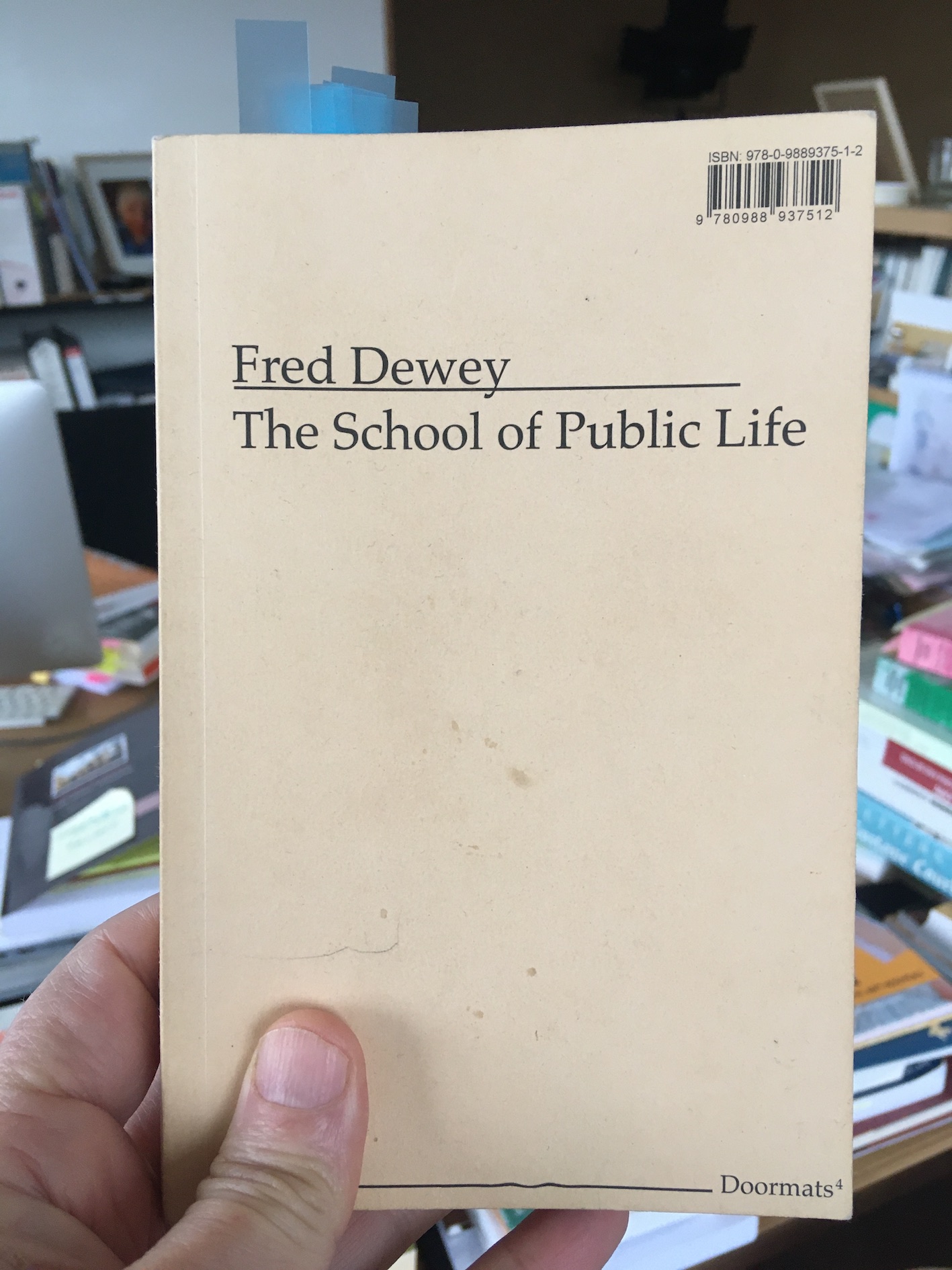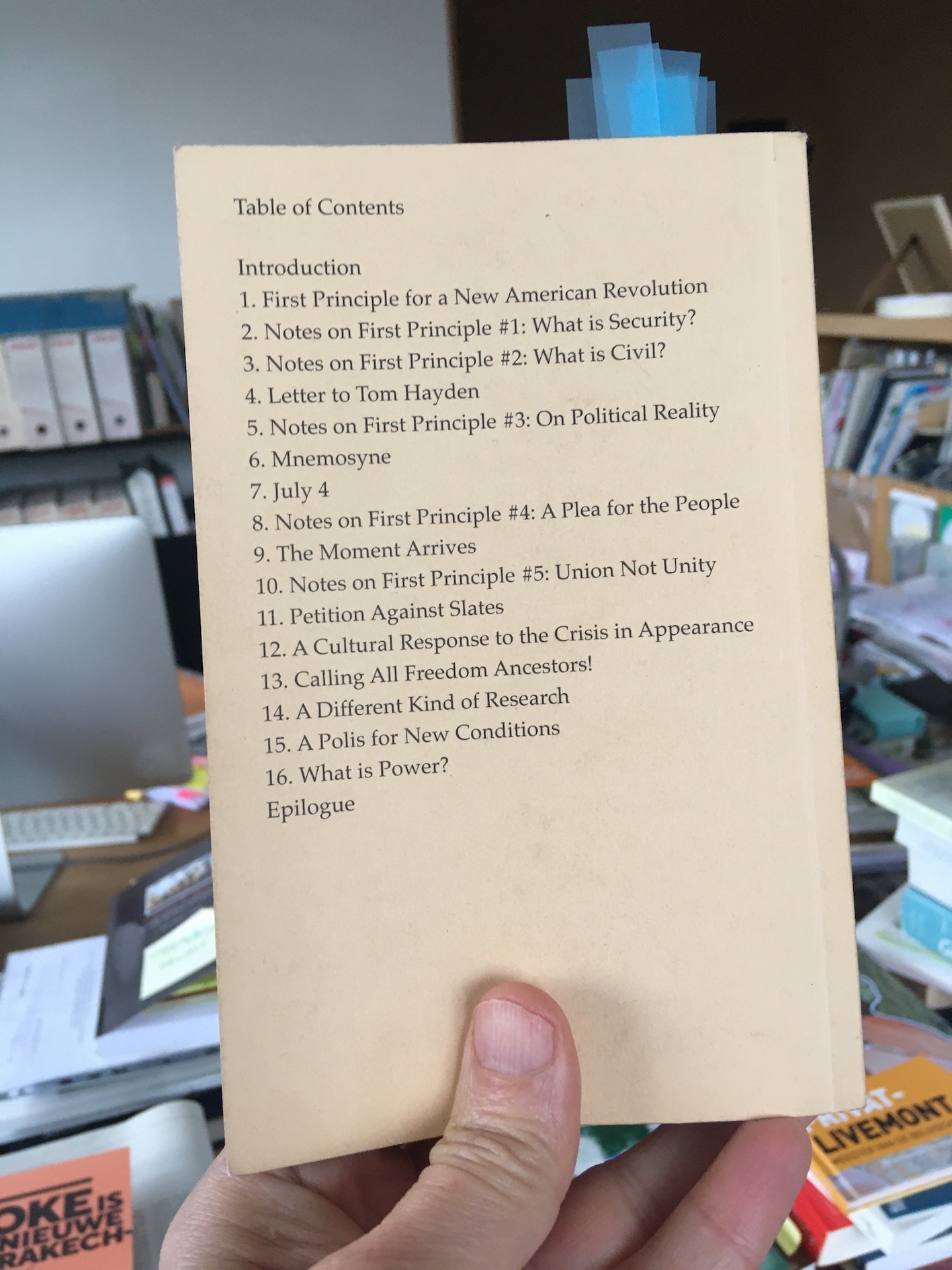Reading Room #28: Fred Dewey and School of Public Life
The first in a new series of Reading Rooms around the library of the American thinker and organiser Fred Dewey, a collective reading and discussion around his The School of Public Life (2014)
23/01/2024, 18-20h
“People are more willing to talk … when they’re sharing something deeply meaningful with each other. That’s why poetry becomes the foundation of a new kind of dialogue.” (Fred Dewey)
Dewey had a fierce commitment to creating public spaces for intellectual and political engagement. His home base was Los Angeles, but the last years of his life he spent in Brussels. In 2022 Dewey died unexpectedly. To ensure the continuation of his legacy, the Fred Dewey Legacy Project was initated, aiming to set up initiatives that extend Dewey’s work, as well as preserve his considerable library.
Summer 2023 artists Filip van Dingenen and Hélène Meyer re-installed part of Dewey’s extensive library. They are opening up his collection of books to artists and researchers from their studio home. One way to activate this library is Jubilee’s 2024 Reading Room program. This program performs a collective knowledge transfer – using the library as a situated research tool from which each Jubilee artist can select a title and propose it for a collective reading and discussion session.
Built out of two decades of interventions in politics and culture, The School of Public Life records the author’s efforts to revive and rethink public space from Los Angeles, Lowndes County, Alabama and Cork, Ireland to current day Berlin and beyond. Drawing on manifestoes, lectures, letters, soap box incantations, and experimental texts, delivered in different situations and moments, the book chronicles one person’s efforts to focus on and secure what is attacked and simulated from every direction: the power of the people.
From work in the neighborhood councils movement and directing a space for culture in Los Angeles, to examining the people’s need for poetic description and the relationship of time to existential politics, the book seeks to re-examine community life, art, history, and principles of selfgovernment against the abyss of economics, parties, and constructed powerlessness. The book explores the works of thinker Hannah Arendt, the poet Charles Olson, dancer and poet Simone Forti and lessons to be drawn from the New England town meeting, artist Joseph Beuys’ Office for Direct Democracy, the Lowndes County Freedom Organization in Alabama, experiments at Black Mountain College and Beyond Baroque, and Rosa Parks and the Montgomery bus boycott.
Through these, The School of Public Life pursues a live reframing of responsibility and engagement in this world and no other. How does public life encourage thinking, action, and imagination? What is wrong with mere concepts? How might culture actualize the people and public life? How do we respond to, and understand, powerlessness? Why is protest utterly inadequate? How might theory and culture help us discover our existing power? The School of Public Life addresses old and new principles of a democracy and a republic, not as clichés and propaganda but as vital for a new era of politics, art, and courage.
This Reading Room is proposed by Filip Van Dingenen
Calendar of Fred Dewey Reading Rooms
Each reading room takes place from 18-20h. Soup and bread will be provided. Locations are different each time
Address Reading Room #28
Rue Montenegro 127
1190 Forest

